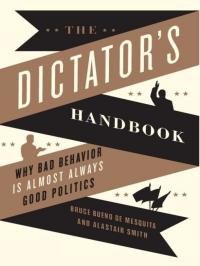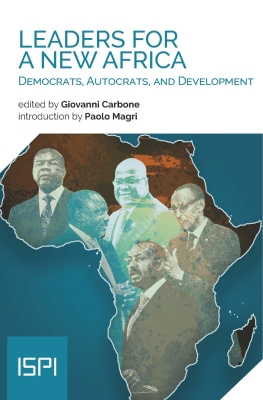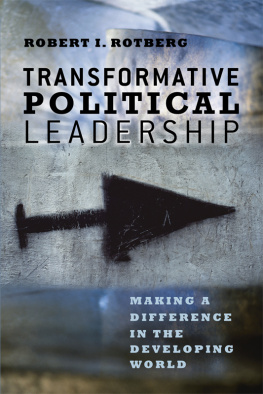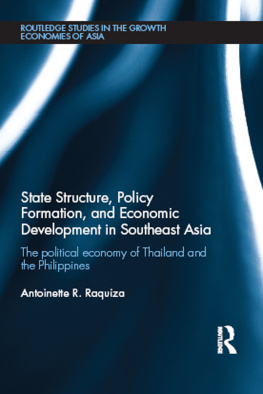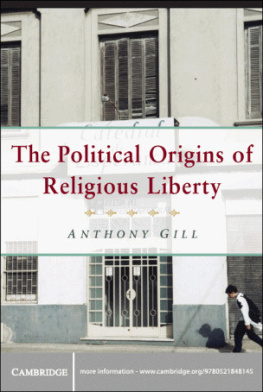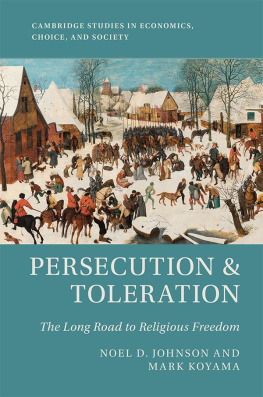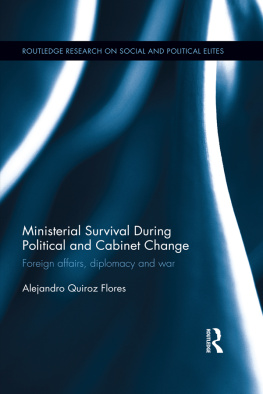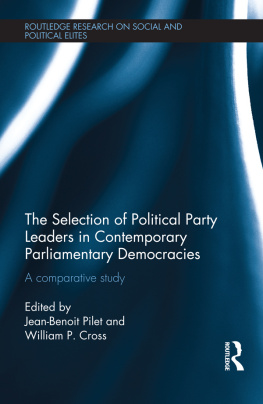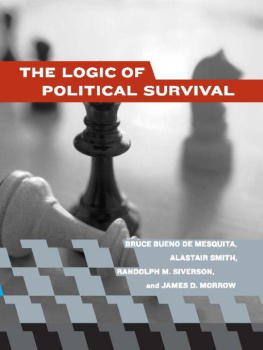Table of Contents
Title Page
Copyright Page
Dedication
Preface
I - A THEORY OF POLITICAL INCENTIVES
Chapter 1 - Reining in the Prince
Three Puzzles
The Essence of the Argument
Organization of the Investigation
A Theory of Political Incentives: Part I
Policy Choice and Political Survival: Part II
Choosing Institutions for Political Selection: Part III
Why Focus on Political Survival?
Threats to Political Survival
Challenges to Political Survival
Easy Answers, Inadequate Answers
An Incomplete Theory of Institutional Political Laws
Chapter 2 - The Theory: Definitions and Intuition
The Elements of the Polity
The Selectorate (S)
The Winning Coalition (W)
Illustrative Examples of Small, Restrictive Winning Coalitions
Sources of Risks and Rewards
The Challengers Commitment Problem
Affinity
The Replacement or Deposition Rule
Political Systems: Analogies But Not Equivalence
What Is Missing from Our Theory
Conclusion
Chapter 3 - A Model of the Selectorate Theory
Economic Activity, Policy Provision, and Payoffs
Equilibria of the Selectorate Model
Alternative Equilibrium
How Institutions Structure Incentives
Further Implications
Bridging from Theory to Testable Hypotheses
Conclusion
Appendix
II - POLICY CHOICE AND POLITICAL SURVIVAL
Chapter 4 - Institutions for Kleptocracy or Growth
Measurement Issues
Institutional Variables
Measurement of Labor, Leisure, and Taxes
Evidence: Labor or Leisure
Evidence: Taxation
Economic Growth
Government Expenditures, Expenditures Per Capita, and Opportunities for Kleptocracy
Conclusion
Chapter 5 - Institutions, Peace, and Prosperity
The Shift from Public to Private Goods in Sparta
Empirical Assessments: Core Public Goods
General Public Goods
Public-Goods Summary
Empirical Assessment of the Provision of Private Goods
Montesquieu, Madison, Population, and Public Welfare
Leopold II: An Illustration
Conclusion
Chapter 6 - War, Peace, and Coalition Size
The Democratic Peace
The Debate
The Dyadic Selectorate Model
Structure of the Dyadic Selectorate Game
Solving the Game
The Decision to Fight or to Negotiate
The Selectorate Peace: Interaction of Polities
Diversionary War and Compromise Agreements
Empirical Assessments
Conclusion
Appendix
Chapter 7 - Political Survival
Survival as Explained by the Selectorate Theory
Mamluk Egypt
Empirical Assessment of Political Survival
Extrapolitical Risks of Deposition
A Tale of Two Countries
Conclusion
III - CHOOSING INSTITUTIONS
Chapter 8 - Institutional Preferences: Change from Within
The Selectorate Theory and Institutional Preferences
Oppression
Political Actions to Alter Institutions
Population Migration: The Disenfranchised and the Selectorate
Protest, Civil War, and Revolution
Purges and Coups dtat: Actions by Coalition Members
Actions by Leaders: Constructing Autocracy
Conclusion
Chapter 9 - The Enemy Outside and Within: War and Changes of Leaders and Regimes
Selection Institutions and War Aims
The Anglo-Soviet Invasion of Iran
Testing the War-Aims Argument
Leadership Removal
War and Domestic Change
Nation Building After Disputes
Franco, Mussolini, and the Enemy Within
Conclusion
Appendix
Chapter 10 - Promoting Peace and Prosperity
The Hobbes Index
Explaining the Hobbes Index
What Can Be Done?
Conclusion
Notes
References
Index

First MIT Press paperback edition, 2005
2003 Massachusetts Institute of Technology
All rights reserved. No part of this book may be reproduced in any form by any electronic or mechanical means (including photocopying, recording, or information storage and retrieval) without permission in writing from the publisher.
This book was set in Times Roman by SNP Best-set Typesetter Ltd., Hong Kong Printed and bound in the United States of America.
Library of Congress Cataloging-in-Publication Data
The logic of political survival / Bruce Bueno de Mesquita . . . [et al.].
p. cm.
Includes bibliographical references and index.
ISBN 0-262-02546-9 (hc. : alk. paper), 0-262-52440-6 (pb.)
1. Heads of stateSuccession. 2. Heads of stateTerm of office. 3. Political planning. I. Bueno de Mesquita, Bruce, 1946-
JF285.L64 2004
320.011dc21
2003045943
10 9 8 7 6 5 4 3 2
To Our Winning Coalition:
Arlene
Fiona
Suzanne
Karen
Preface
The Logic of Political Survival is our collective effort to solve a fundamental political puzzle: why are leaders who produce peace and prosperity turned out of office after only a short time, while those who produce corruption, war, and misery endure in office? In trying to solve this puzzle we have developed a theory about political selection that is surprisingly broad in its implications. The theory focuses on how two factors that govern the selection of leaders influence taxing and spending decisions, leadership turnover, social welfare, and institutional change. The two factors relate to what we call the selectoratethe set of people with a say in choosing leaders and with a prospect of gaining access to special privileges doled out by leadersand the winning coalitionthe subgroup of the selectorate who maintain incumbents in office and in exchange receive special privileges. Our theory challenges Hobbess view that an absolute sovereignthe Leviathanis the best form of governance, while also probing and questioning the perspectives of Machiavelli, Hume, Madison, Montesquieu, and other democratic theorists about the virtues of republics.
This project, begun a decade ago, started as a narrow investigation of the consequences of war for the political survival of regimes and leaders. It has grown into a theory of how political leaders allocate resources, with allocation decisions assumed to be made with an eye toward enhancing incumbents prospects for remaining in office. From there it spread to assessing the relationship between institutions for selecting leaders and such factors as economic growth, corruption, property rights, patterns of population migration, coups dtat, war aims, war outcomes, revolution, health care, regime change, oppression, imperial expansion, foreign aid, civil liberties, trade policy, the quality of drinking water, the demise of monarchy, the endurance of democracy, apparent civic-mindedness, selection of core institutions of governance, and much more. All of these and many other central economic, social, and political variables are shown to share common explanations in the theory we propose.
We have endeavored to provide a general theory coupled with specific formal models from which we deduce our central claims. The political intuition underlying the models is explained plainly and nontechnically in the body of the text, buttressed by formal proofs in chapter appendixes. More technically inclined readers may wish to read the appendixes immediately after chapters 3, 6, and 9, while just skimming the intuitive explanation in the body of those chapters. Following the presentation of the basic model in chapter 3, subsequent chapters expand applications through related models that form part of the same theory and by relaxing assumptions to evaluate the theoretical, as well as empirical, robustness of the theory. We test most of the theorys implications on a broad body of data, sometimes spanning a period as long as nearly two centuries. The central propositions are evaluated with extensive control variables representing alternative explanations as well as exogenous factors that might lead to spurious associations between our predictions and observations.
Next page




